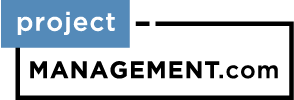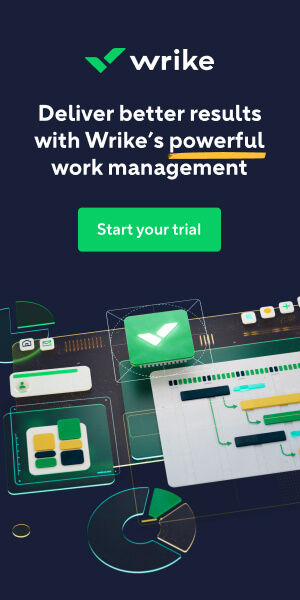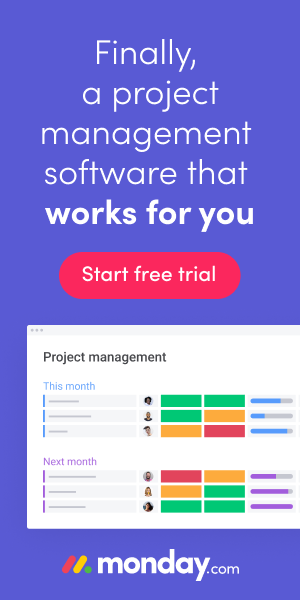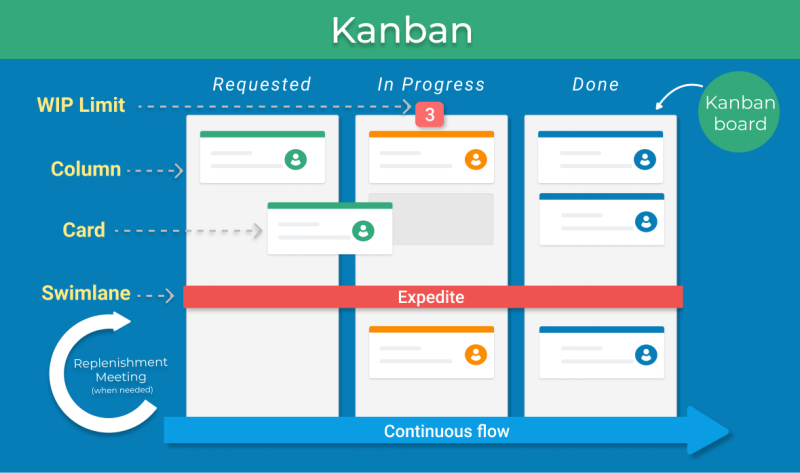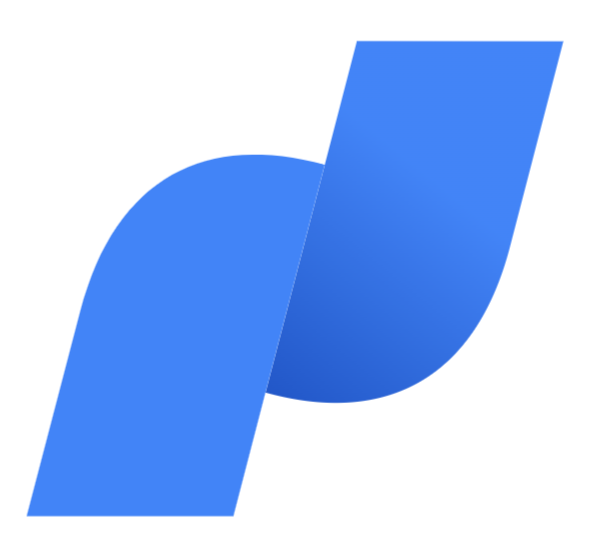Construction projects are built from many smaller deliverables and subprojects, all of which a company needs to track so it can meet promised deadlines, work within a budget, and stay within scope. Construction project management software provides a single, secure platform that enables users to manage the complex project plans, phases, schedules, budgets, and risks that are unique to construction projects of every size.
More importantly, project management software for construction provides a collaborative environment that simplifies communication and coordination, aligning all teams’ goals to a common vision: a successfully completed project.
We’ve gathered the industry’s most widely used software choices for your review, along with some expert buying advice.
Featured Partners: Construction Project Management Software
In a hurry? Then check out these top-rated project management software solutions.
Watch Now: What is Construction Project Management Software?
Featured Project Management Software Systems for Construction
Let’s go into deeper detail on several solutions that are particularly suited to the challenges of managing construction projects.
CoConstruct
CoConstruct is construction project management software for builders and remodelers. Although a Buildertrend company, it is a complementary provider of project, financial, and client management software geared towards independent builders in the residential construction industry. It helps companies stay in control of their projects and business.
CoConstruct’s simplified construction project management includes a Schedule feature with Gantt chart and other views to keep all jobs on track. Users can create, assign, and track to-do’s to team members and subs, or set reminders to clients. They can add a to-do using voice-to-text, attach docs and photos, and send automatic notifications. The PM software also has built-in communication tools for clients and trade partners, financials for estimating and forecasting, bidding and proposals, timesheet, and integration.

Pros
- Ease of setup and use
- Estimates and proposals features
- Responsive customer support
Cons
- Limited way to export data
- Purchase order and invoicing need improvements
monday.com

monday.com is a cloud-based platform that provides project management tools for a variety of use cases, including construction management. It enables users to connect all the moving parts in construction projects to drive impact and allow teams to reach goals faster. The platform works across devices to simplify managing and collaboration between office teams and field teams.
monday.com is for architects, builders, general contractors, and engineers. Users can easily collaborate and share files, images, updates, RFIs, and feedback. Built-in progress tracking automatically monitors, calculates, and updates information on budgets, timelines, and resources at every stage with high-level dashboards and charts. Other features include ready-to-use construction templates, financial management, portfolio management, and document management.

Pros
- Task management
- Project scheduling
- Ease of setup and use
Cons
- Most useful features are available in the higher plans (Pro and Enterprise)
- Exporting charts and dashboards needs more options
Smartsheet

Smartsheet is a modern project and work management platform that enables companies to manage projects and automate processes for construction projects of every size. Applicable to a wide selection of roles and industries, including the construction industry. It helps streamline the construction project lifecycle with pre-built solutions, templates, and custom solutions such as for preconstruction, safety management, field operations, resource management, quality control, and reporting.
Smartsheet allows users to collaborate, brainstorm project requirements, and track initial cost estimates in a sheet. Teams can centralize project requirements and keep track of documentation with attachments. It also has dashboards and portals to highlight specific key visual information. Other features include project cost calculations, forms, and reports.

Pros
- Project planning and scheduling
- Customizable dashboards
- Ready-to-use templates
Cons
- Activity log is not simple to understand
- Some users would like an easier way to set permissions and sharing
Fieldwire

Fieldwire is a jobsite management software solution for construction teams. It is ideal software for architects, general contractors, specialty contractors, owners, and engineers. It enables the construction project team, from the contractor foreman to the project manager, to collaborate and share information in real time.
Fieldwire provides real-time messaging where team members can connect conversations with specific tasks for faster decision-making and issue resolution. Users can track all construction tasks, activities, and issues. They can record issues and update plans with notes, photos, and videos. The construction project management software also has schedules, reports, and mobile apps. Field teams can easily update plans and create digital forms.

Pros
- Visual project tracking
- Resource monitoring
- Ease of setup and use
Cons
- Needs better image file management
- Adding new drawings could be more intuitive
Procore

Procore is construction management software built for owners, main contractors, and subcontractors. It connects the site and office for real-time visibility and improved efficiency. Aside from project management, it also has products specific for preconstruction, resource management, and financial management. It provides an all-in-one solution that simplifies construction project work from tendering to close-out.
Procore construction project management software includes mobile collaboration tools that promote clarity of tasks, helping teams stay on schedule and avoid rework. It captures all project correspondence and makes it accessible. Real-time update of information increases visibility and mitigates risks. The software provides a project overview, tracks all steps, and speeds up the approval process with features like contact directory, documents, spec management, integrated scheduling, task management, RFIs, drawings, time cards, and emails.

Pros
- Photo and video uploads
- Communication and collaboration
- Responsive support
Cons
- Need for additional third-party integrations
- Users wish for enhancements in the timecard/timesheet feature
eSUB

eSUB is a cloud-based construction project management software built specifically for trade contractors. It has a user-friendly mobile app that allows foremen and supervisors to submit logs, reports, and schedules easily on the field. It provides users access to all their project documents and data in single, secure cloud-based workspace.
eSUB has project management tools that increase project visibility, labor productivity, and business profitability. It includes tools for scheduling, resource management, daily reporting, and RFIs for detailed project management and reporting. Other features include unlimited data storage, Gantt chart, meeting minutes, contacts & vendors, and equipment rental.

Pros
- Ease of setup and use
- Document tracking
- Communication and collaboration
Cons
- Some problems with QuickBooks integration
- Timecard UI needs improvement
Autodesk Build

Autodesk Build is part of the Autodesk Construction Cloud solution that connects field and project management workflows. It has tools for project management, quality management, safety management, and cost control that unifies teams, workflows, and data. Field and office teams can manage, share, and collaborate on project schedules to help eliminate delays and reduce miscommunication.
Autodesk Build lets users create RFIs, manage the review processes, and connect RFIs to issues, change orders, or meeting minutes. It can simplify submittals and improve meetings by tracking items and commitments. Other features include centralized issue management, cross-device compatibility and sync, markup tools for drawings, and 2D drawing and 3d model viewing tools.

Pros
- Field collaboration and reporting
- Issue and markup features
- Easy viewing and management of plans and documents
Cons
- Occasional file sync issues
- Users wish for smoother product integration with other Autodesk products
Houzz Pro

Houzz Pro is an all-in-one business software for contractors and design professionals. It enables users to attract more clients, run profitable projects, and deliver an exceptional customer experience with one software solution. It is designed to meet the needs of builders and remodelers, interior designers, architects, and specialty contractors. It comes with marketing tools to help build the business’s brand, as well as visual modeling tools to share ideas and give clients 3D tours.
Houzz Pro includes project management features that allow users to save time while maximizing profit. Users can manage follow-ups, schedule meetings, and convert leads to turn prospects into projects. They can also create accurate estimates and bids within minutes with the help of local material and cost libraries. Other features are templates, client dashboards, and smart PM tools like visual timelines, task management, file management, and mobile apps.

Pros
- Integrated CRM
- Accurate estimating tool
- Centralized dashboard
Cons
- Delays in customer support response
- Users wish for more texture options in the 3D tour/walkthrough
RedTeam

RedTeam is a construction management and collaboration software preferred by many commercial general construction companies. It provides the tools to help companies develop their construction business. The software covers the whole project lifecycle, from preconstruction, to managing projects on and off the field, to financials. Users can collaborate easily with a free mobile app, real-time updates, and paperless documents and contracts.
RedTeam construction project management software lets teams create requests and submittal packages. Users can easily receive, review, share, and track RFIs with an accurate and up-to-date log. Change order features enables users to request notes from vendors, select vendors, and issue change orders. It also has a Gantt scheduling tool that can import and export Microsoft Project files.

Pros
- Timesheet and time tracking feature
- Document sharing and project file organization
- Responsive customer support
Cons
- Scheduling on the mobile app is challenging
- Occasional slowdown and timing out of pages
Buildertrend

Buildertrend is a construction project management software and app that connects teams and improves efficiency to increase profits. It is ideal for home builders, specialty contractors, remodelers, and commercial contractors. The software helps with every stage of the build lifecycle, from sales and project planning to financial tracking and client communication.
Buildertrend project management tools include daily logs, change orders, schedules, selections, time clocks, to-dos, and warranty. Users can document and share information with team members, contractors, and clients. They can make notes with voice-to-text, automatically record weather updates, manage change orders on the go, get approvals with e-signatures, and collect payments online. Moreover, the software has tools and features for managing leads, bids, and invoices. It also has a built-in client portal and email marketing.

Pros
- Bids management
- Integrated CRM and lead tracking
- Responsive customer support
Cons
- Project accounting features have a high learning curve
- Users wish for a simpler way to create proposals
